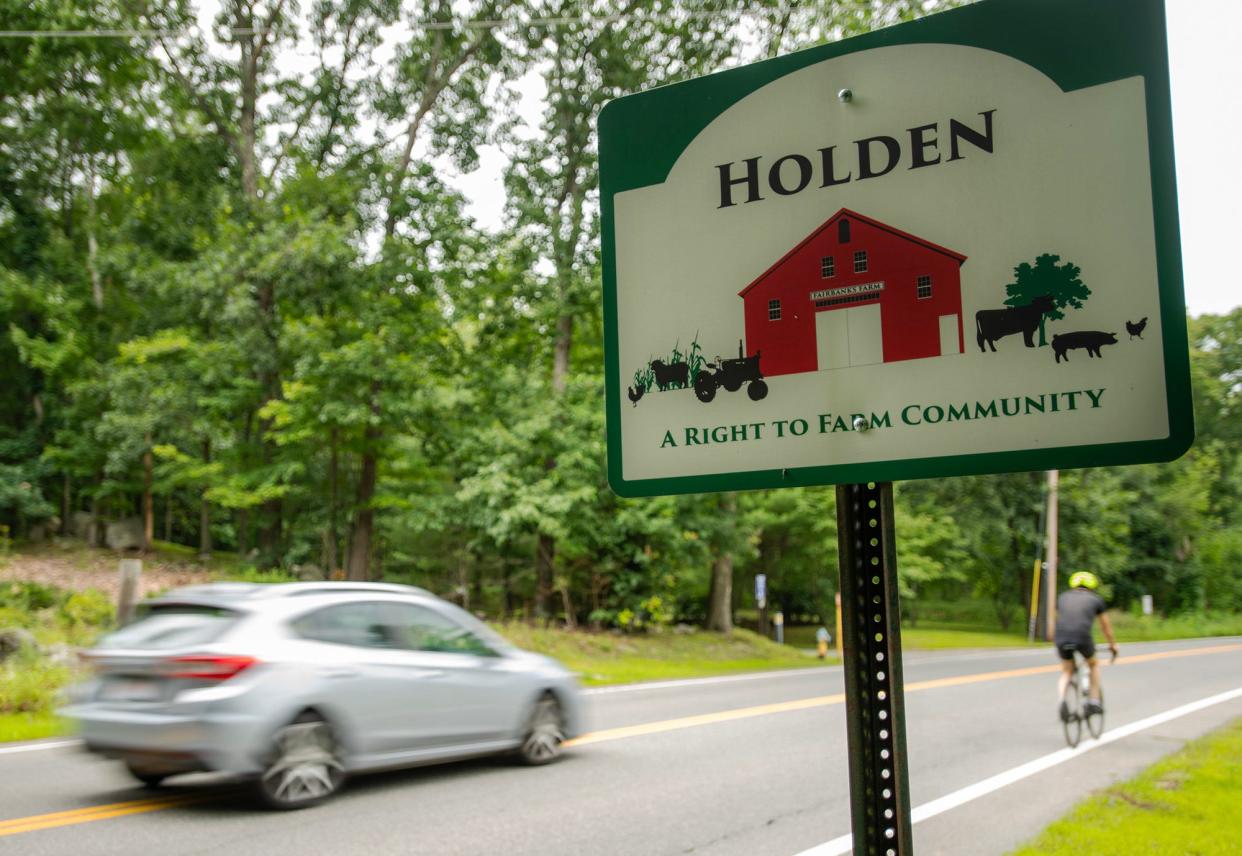Judge dismisses lawsuit against Holden over defiance of MBTA housing law

HOLDEN — Finding that the plaintiffs lacked standing to sue, a Superior Court judge Friday approved the Town of Holden's motion to dismiss a lawsuit filed by the Central Massachusetts Housing Alliance and two individuals over the town's decision not to comply with a state law designed to increase housing.
Worcester Superior Court Judge Daniel M. Wrenn ruled Friday that a complaint filed on behalf of the Central Massachusetts Housing Alliance, Westborough resident Lydiana Morales and Holden resident Jennifer Lish did not prove that the town's decision had caused any direct harm or injury to the plaintiffs.
The lawsuit was initially filed in August in Supreme Judicial Court and was later moved to the Superior Court.
Holden has thus far refused to comply with a 2021 state law, the Massachusetts Bay Transportation Authority Communities Act, which mandates cities and towns with access to public transit change zoning to allow for more multifamily housing, particularly near transit stations. Holden is one of 177 municipalities subject to the zoning law.
According to a Monday news release from the town, Holden is still in the process of deciding whether it will "participate in the Commonwealth's MBTA Communities Program." Holden Town Manager Peter Lukes said in a statement that the town has received dozens of calls from residents and municipal leaders about where it stands.
“We have not been able to respond due to the pending litigation, but now that it is resolved at this stage, Holden is prepared to advise other municipalities of our stand and share our legal rationale behind these decisions,” Lukes said.
Lukes previously said the town views complying with the MBTA Communities Act as voluntary, while Gov. Maura T. Healey and Attorney General Andrea Joy Campbell have said it is mandatory, and Campbell has issued an advisory to that effect.
In February, Lukes said, “The Town of Holden wants to zone the way the Town of Holden wants to zone.”
He added that local officials felt changing zoning to meet the MBTA Communities Act would not fit the character of the town, which is lined with single-family homes.
The lawsuit had sought to establish that complying with the act is mandatory. The complaint was filed by Lawyers for Civil Rights and Brown Rudnick LLP.
According to court documents, Morales is a multiracial Hispanic woman who is unable to work due to disabilities and moved to a Westborough emergency shelter.
Lish is a Holden resident who fears the town would lose out on funding because of its decision not to comply, as well as the opportunity to build a more diverse community through new housing production, according to court documents.
Holden could lose access to state grants including grants through the MassWorks Infrastructure Program and some funding for its housing authority as a result of noncompliance.
In his judgment, Wrenn wrote that the housing alliance and Morales had not established proof of direct harm.
"The complaint makes clear that CMHA and Morales are overburdened by a lack of affordable housing in Massachusetts," Wrenn wrote. "But the complaint contains no allegations connecting the town's failure to comply [with the MBTA policy] to any harm or specific injury to CMHA and Morales."
Wrenn said the housing alliance and Morales allege a general harm suffered due to a lack of affordable housing in the state. Furthermore, he notes that the housing alliance operates in Worcester County, where Holden is but one of many towns and Holden is just one of many towns Morales could consider living in if more affordable housing were available.
While Lish has more of a connection to Holden as a town resident, Wrenn wrote that her speculation about how noncompliance may hurt the town and its residents does not add up to a specific claim of harm.
Leah Bradley, CEO of the Central Massachusetts Housing Alliance, referred a request for comment to Lawyers for Civil Rights.
Jacob Love, an attorney with Lawyers for Civil Rights, said the organization was disappointed in the decision to dismiss the lawsuit "on purely procedural grounds."
"It is important to note that this decision does not constitute the end of the legal process and that we anticipate filing an appeal," Love said. "In the meantime, as the case proceeds, Holden is still required to comply with the law."
In a Monday statement, Lukes celebrated the dismissal of the lawsuit.
“This is a huge win for the Town of Holden,” Lukes said. “The CMHA sent out press releases to every media outlet in the state over a week prior to the town receiving notice that the action was even filed in the Court. It appeared that the entire purpose of this frivolous lawsuit was to intimidate and embarrass Holden through the CMHA's false narrative. We were clearly not intimidated and frankly the only people who should be embarrassed are the ones who brought this inappropriate legal action and wasted everyone's time."
This article originally appeared on Telegram & Gazette: Lawsuit against Holden for defying MBTA zoning law is dismissed

